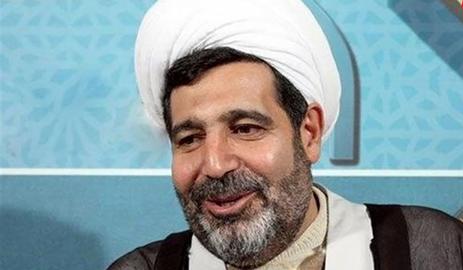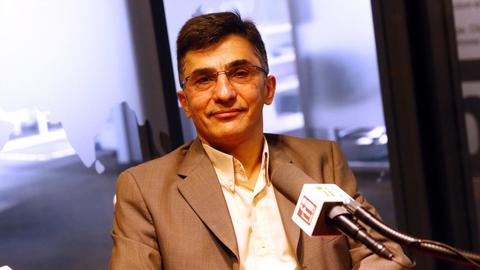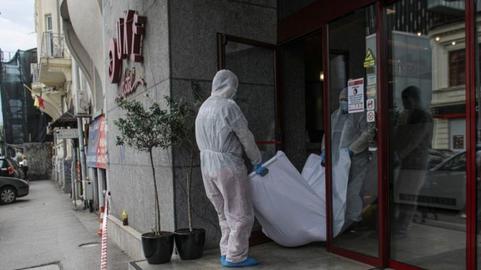At noon on June 19, 2020, Romanian news agencies reported that the body of Gholamreza Mansouri, a judge accused of corruption by the Iranian judiciary and accused of crimes against humanity by the organization Reporters Without Borders, had been found outside the hotel where he had been staying. Reports said he had died after falling out of the window of his room.
It is not yet clear whether Gholamreza Mansouri committed suicide, whether it was an accident, or whether he was murdered. Romanian officials are currently carrying out an investigation into the details of his death.
After the news first broke, there were conflicting reports about where Mansouri's body was found, with some saying he was inside the hotel near the lobby.
Prior to his death, the Romanian judiciary had received a complaint filed by the campaign group Reporters Without Borders (RSF) and another private plaintiff on June 11. Reza Moini, head of the Iran, Afghanistan, and Tajikistan desk at RSF, said the Romanian judiciary had a responsibility to explain to Gholamreza Mansouri’s victims — among them at least 20 journalists — why the judge had not been arrested, as well as providing details about his death.
Alongside the news of the case against Mansouri and his subsequent death, this week also saw the corruption trial against Akbar Tabari, who had been deputy to Sadegh Larijani during his time as head of the Iranian judiciary, get underway.
Iranian and international media reported that Mansouri, who is accused of accepting 5,000 euros in bribes, had fled Iran in September 2019 on a multiple-entry Schengen visa and had been living in Germany for the last nine months.
A week later, it was revealed that he had been arrested in Romania after Iran had called for his arrest through Interpol. It was at this point that RSF lodged its case against Gholamreza Mansouri for crimes against humanity, first in the German courts and then in Romania.
International jurist Kaveh Moussavi was also drafting submissions to prosecutors in Germany, Sweden and Norway. He argued that Mansouri could be tried in the European Union for terrorism and torture, as well as taking people hostage. He and his team have heard from more than 40 individuals with information on Mansouri’s alleged crimes. Seven of them were willing to give evidence as witnesses in court.
The Stories of Journalists
Several journalists in Iran came forward about the torture and persecution they endured under Gholamreza Mansouri, and about how their families were repeatedly summoned, interrogated and threatened by him.
Mansouri has a long history of suppressing freedom of expression. He ordered the closure of several newspapers in Iran in 2012, and also signed the arrest warrant for 20 journalists, but he has also been identified as a corrupt and brutal interrogator. Journalist Mehdi Mahdavi Azad said he was tortured on the orders of Gholamreza Mansouri in 2009, an ordeal that left him with broken bones.
As part of RSF’s case against Mansouri, Iranian journalists living in Iran and abroad were contacted to give testimonies. When I spoke to some of them, they all said they had been harassed, threatened, insulted and tortured during their interrogations, all of which was carried out on the order of Gholamreza Mansouri. Some of them said Mansouri led the interrogations himself. Among those who decided to file their own, separate complaints alongside RSF’s were two female journalists. Both women testified that Gholamreza Mansouri had threatened them, and one of them said that he had ordered her to be transferred to solitary confinement after interrogation. At the time of Mansouri’s death, one of their complaints had been officially registered and the other was being processed.
The International Federation of Journalists had issued a statement urging the Romanian judiciary to acknowledge the human rights abuse perpetrated by Gholamreza Mansouri and to prosecute him for the crimes.
Iran Hoped for Extradition
At the same time, the Iranian Ministry of Foreign Affairs and the judiciary of the Islamic Republic were appealing for his extradition back to Iran so that he could face corruption charges. Because Mansouri might have faced the death penalty in Iran, the extradition was unlikely to have gone ahead.
Gholamreza Esmaili, the spokesperson for the Iranian judiciary, said Mansouri's arrest in Romania was carried out with the help of Interpol and at the request of the Islamic Republic, and that his return to Iran would be delayed due to flight restrictions in connection with the coronavirus pandemic.
Instead of ruling that Mansouri remained in detention until his trial, a judge in Bucharest ordered Mansouri’s release until July 11, 2020, banned him from leaving the country and instructing him to report regularly to the police.
The Romanian judge had also requested that the Islamic Republic send extradition request documents directly to Romania. The court was scheduled to decide at the time of the trial whether returning Gholamreza Mansouri to Iran would endanger his life.
RSF’s Reza Meini told IranWire that although Romania was legally allowed to keep Gholamreza Mansouri in detention, it was not clear why the judge had decided against it. That, he said, must be explained. "The case was submitted to the prosecutor's office. Over the past week, we have repeatedly called for the arrest and preliminary investigations. In today's announcement, we also emphasized that we are very sorry that Gholamreza Mansouri died in this way and could not be brought to justice and respond to accusations of torture and detaining journalists and committing crimes against the flow of information, freedom of press and media. On the other hand, we regret that, in accordance with international law, Romania, which is one of the countries that is a party to the European Convention on Human Rights, is obliged to conduct the proceedings in such an important case, regardless of the nationality of the accused and the place of crime. But we are glad that we have been able to take action in these few cases related to crimes against humanity. This will not be our last step.”
Impact on Future Cases
Moini also said the cause of Mansouri’s death must be investigated and the findings made public. "He could have committed suicide in prison," Romanian prosecutors told RSF. But Moeini says determining how Mansouri died is crucial because it could have an impact on future litigation processes, and on the way other European judicial systems respond to cases involving corruption, human rights violations or any serious crimes allegedly carried out by foreign nationals.
"It is important to know why no action has been taken by the European Court of Justice, which operates within the framework of international law and is obliged to investigate and take timely action. For us it is important to know how we could and can address such complaints in a different manner. Most important, however, are the victims; their victimhood could be recognized in this court and would affect their future lives. Most importantly, in litigation, it is not just the judicial and legal form that is at stake, but the most important effect is the reduction of violence.” He said people could not forgive individuals for what they had done and that any move for such forgiveness could even block efforts to bring about justice.
He stressed, too, that the cases lodged against Gholamreza Mansouri's case were a lesson for other criminals who, he said "will one day be held accountable before the law in courts outside Iran, and hopefully one day in Iran."
Some reports have noted that if the details of Gholamreza Mansouri's case had been transparent and been made publicly available in Iran, he might have faced trial there, and he might be alive today. His victims wanted him to face justice, and have now been denied this right.
Gholamreza Mansouri’s death has meant this justice did not happen, but what did happen when he fled Iran is instructive for the future. RSF and private individuals pursued their cases against him, and it will be remembered. Iran's legal system is corrupt and unjust, but outside the Islamic Republic, there are individuals, organizations, and institutions that will seek out the perpetrators of censorship, suppression and violence, and they will do what they can to ensure these people face the full force of international law.
visit the accountability section
In this section of Iran Wire, you can contact the officials and launch your campaign for various problems


























comments